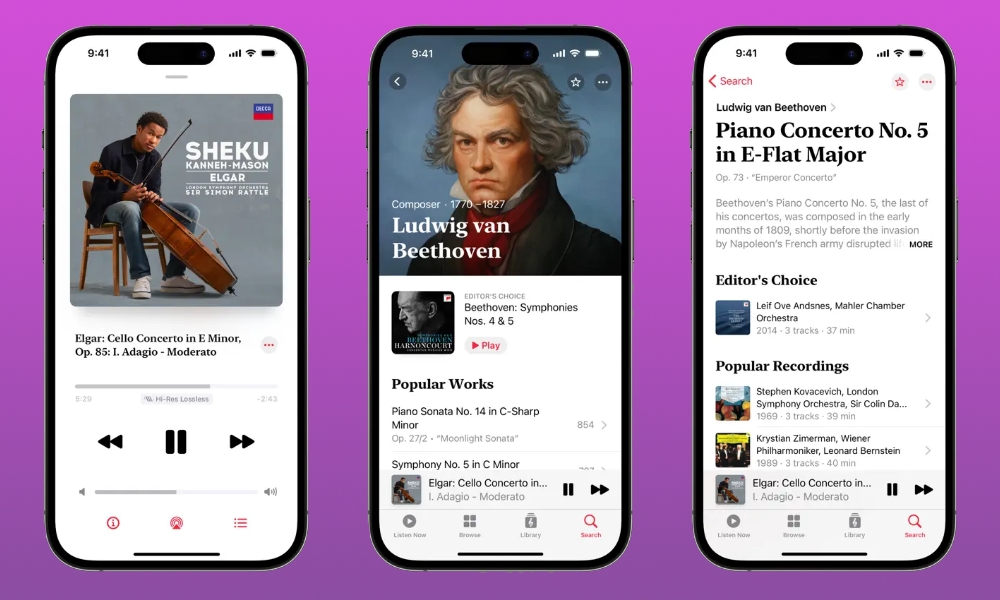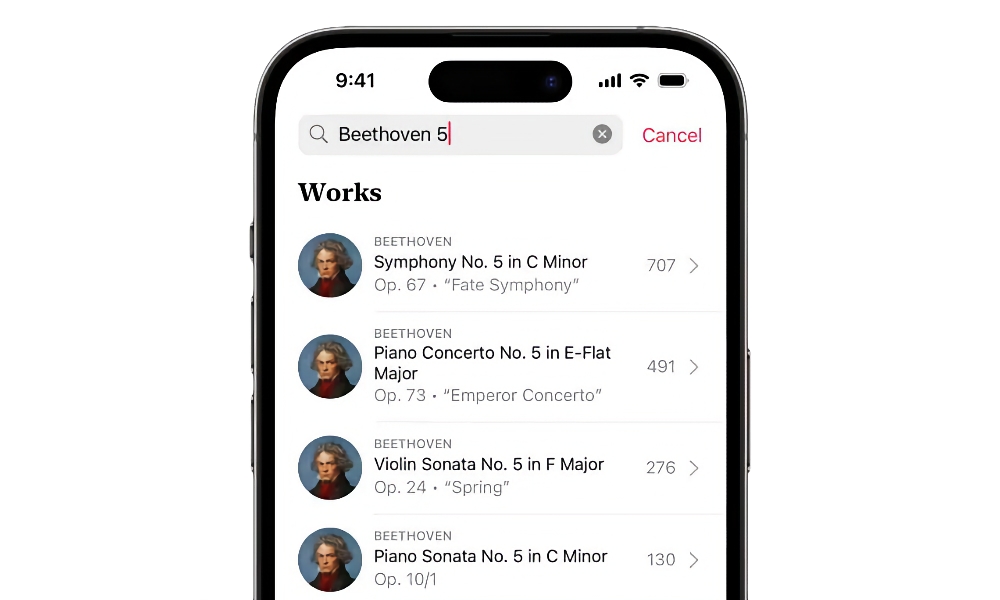It’s Official! Apple Music Classical Launches on March 28
 Credit: Apple
Credit: Apple
Toggle Dark Mode
Following mounting evidence in recent iOS 16.4 betas that Apple has been readying its new classical music streaming service for launch, the company made it official today, announcing that the new service will go live on March 28.
Apple first announced plans for a classical music streaming service in 2021, which would stem from its acquisition of Primephonic. The company initially suggested it would arrive sometime in 2022, leading to speculation it would form part of iOS 16; however, the year ended with nary a peep from Apple as to its plans. Some even believed the project had been shelved entirely.
Nevertheless, as more references to the service kept popping up in recent iOS 16.4 betas, it became apparent Apple a launch of the service was imminent.
While some believed Apple would hold off until iOS 17 was unveiled in June, the release of Apple Music Classic this month has a nice symmetry to it; Apple Music launched eight years ago with the debut of iOS 8.4, so it’s only fitting that iOS 16.4 ushers in the next significant chapter in Apple’s music streaming ambitions.
How To Get Apple Music Classical
It’s been hinted from the start that Apple Music Classical will be delivered as a separate app rather than an extension of the current Apple Music app. After all, as classical music aficionados know, this is a unique and expansive genre with many different ways of enjoying and cataloguing pieces that it’s hard to imagine it fitting well into the traditional Apple Music experience.
In tandem with today’s announcement, Apple has already published Apple Music Classical on the App Store. However, it’s technically a “pre-order” at this point; the app is free, but it won’t be delivered until the service launches on March 28.
Notably, despite iOS 16.4 adding references to Apple Music Classical, the app only requires iOS 15.4 or later, which means it can be used on older iPhone models going back to the 2015 iPhone 6s. While Apple Music Classical will be iPhone-exclusive at launch, Apple promises an Android version is “coming soon,” which makes sense considering Apple Music has already been available on that platform for years. Unfortunately, there’s no word on an iPad app.
Even though it’s a separate app, Apple Music Classical will be a free extension of the Apple Music service. This means that nearly all Apple Music subscribers will get access to the new expansive classical experience at no additional charge. The notable exception is that it won’t be available to those who have opted for the Siri-only Apple Music Voice Plan.
It’s unclear how much Apple’s classical music library will actually increase with the debut of Apple Music Classical. In its announcement, Apple boasts “over 5 million tracks,” making it “the world’s largest classical music catalog,” but it stops short of indicating how many of those tracks are new to the service. As of last October, Apple boasted a catalog of over 100 million songs, which would have certainly included many classical music titles; Apple Music already had a more extensive classical library than Primephonic when Apple acquired it in 2021.
Nevertheless, Apple Music Classical isn’t primarily about expanding the catalog of classical music but rather making this genre much more accessible than it has been in the past — which is precisely why it needs its own dedicated app. This was where Primephonic excelled, despite its smaller catalog. It’s also likely why it doesn’t work with the Apple Music Voice plan; finding classical music by voice search will be a new challenge for Siri to master.
Apple Music Classical will offer a much deeper dive into classical music with meticulously accurate metadata and the ability to search by composer, work, conductor, and catalog number. These are features that classical music enthusiasts have had access to with their own iTunes libraries for years, but they’ve been sadly lacking in Apple Music — until now.
Apple Music Classical is the ultimate classical experience with hundreds of curated playlists, thousands of exclusive albums, insightful composer biographies, deep-dive guides for many key works, intuitive browsing features and much more.
Apple
Apple Music Classical goes further than merely providing highly accurate catalog information. It also includes curated playlists and thousands of editorial notes to provide background information, such as composer biographies and descriptions of key works. It’s essentially the Apple Music experience, with the “Listen Now” and “Browse” sections presented with a razor-sharp focus on classical music.
As with the rest of Apple’s music catalog, the entire collection of five million classical music tracks will be available for lossless streaming at up to 192 kHz at 24 bits. Apple adds that “thousands” of tracks will also be available in Spatial Audio with Dolby Atmos.
Note that you’ll need an internet connection to listen to music via Apple Music Classical, as the app doesn’t appear to include any offline listening capabilities. The same music library will likely be available through the standard Apple Music app, though, so this could be a workaround for folks who want to listen to a few classical tracks out on the go. However, we’re not yet sure whether you’ll be able to access playlists created in Apple Music Classical in the main Apple Music app.
Apple Music Classical will be available on March 28 to anybody with an Apple Music Individual, Student, or Family plan, including Apple One subscribers. It’s available in almost every country where Apple Music is present, except for China, Japan, Korea, Russia, Taiwan, Turkey, Afghanistan, and Pakistan.








